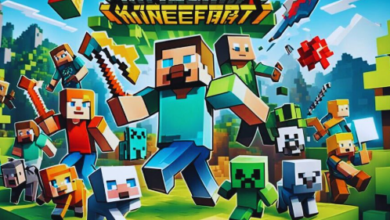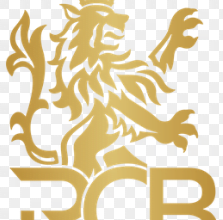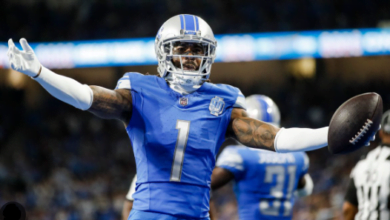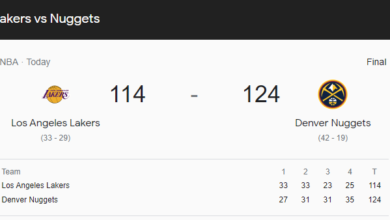Physical education in childhood: understand why it is so important

The importance of physical education appears in the pillars for the healthy growth of children and, therefore, it is part of the subjects taught since kindergarten in public schools. The evolution of technology offers innovative experiences, but the practice of physical exercises remains essential for human development.
In this post, we will talk about the importance of physical education in childhood and explain which areas are affected by exercise and sports, including learning ability. In addition, we will provide details on strengthening bones and muscles, improving focus and concentration, learning discipline and teamwork.
Would you like to know more about the relevance of physical education in childhood? Go ahead!
What is the importance of physical education in childhood?
Children need to live countless experiences to create skills that will be useful throughout their lives. Physical education in childhood helps to initiate the relationship with the social environment, stimulating the body and intellect through experienced professionals. It brings challenges that generate pleasure during sports, games and games.
The activities performed by children are important for affective, social and cognitive development, in addition to stimulating imagination and teaching respect for rules. The physical educator is responsible for encouraging students to improve their social relationships, skills and knowledge, leading them to deal with stressful situations related to sport and physical activity.
What areas are affected by exercise and sports?
Activities such as climbing, jumping, throwing, running, jumping contribute not only to physical health and motor development, but also to the child’s ability to learn. See below the areas most affected by physical activities, games and sports during the first years of a person’s life!
Stimulating healthy growth
The student who does physical activities receives stimulation to physical development and muscle stretching , as well as healthy growth. The exercises improve the quality of sleep and motor coordination, not to mention that they lead the child to know more deeply their abilities, limitations and body conditions.
So, it’s not just about aesthetics, but about preventing diseases that arise silently. Young people need to improve the essential motor functions for adult life, and this can be done with cooperative games and competitions that help in the formation of more conscious and less sedentary citizens.
Strengthening bones and muscles
Healthy growth depends on the daily lives of children who must be active during the day. They need to learn to have a proper lifestyle to get the benefits of physical activities. This helps them deal with stress in adulthood, strengthen bone structures and increase muscle strength .
In addition, games, games and sports raise self-esteem, correct posture and balance, strengthen the heart, generate new talent and improve the ability to interact socially. Each child has their own abilities, and some prefer specific activities.
Improved focus and concentration
The discipline of physical education is applied at school age to help in fixing content, increasing student concentration and career planning for athletes. It improves logical thinking and memory, improves reflexes and helps individuals stay focused on educational activities.
Children who do well in physical exercise are more likely to be successful in other subjects taught in the classroom. The performance of these students is superior to that of sedentary followers. This is because physical exercises are good for brain cells and create interneural connections.
Discipline development
Children’s habits need to be disciplined by adults so that they have well-being and do not suffer physical and moral deterioration. Thus, physical education makes people more disciplined, strong and willing to act. The exercises go beyond helping with problems related to physical and mental health, it generates self-discipline.
Sports make children learn to attend and obey more experienced individuals who are in higher hierarchical positions. On the other hand, it awakens courage, respect for colleagues, the ability to endure pain, hygiene habits and an understanding of the customs of their region.
Team work
The objective of physical education is to provide functional assessment and promote the integral education of the body and mind. Students come to understand the sense of team and have notions of division of labor and solidarity, while maintaining their individualization. Sport, dance and gymnastics lead children to accept rules of democratic coexistence and prepare generations for the future.
It is worth noting that group activities are essential to learn to work as a team in domestic and corporate environments. Human achievements come from the collective effort to reach common goals. For this reason, children play together, sharing spaces and toys during childhood.
Encouraging healthy competitiveness
Competitive activities, therefore, are part of the daily lives of children and teachers in this area. Competitive aspects need to be addressed in a healthy way, with the appropriate teaching of their positive and negative points. Competition promotes internal motivation, willpower and pleasure in achieving goals.
Building values on how to learn to win and lose
Building values on how to learn to win and lose is essential for living in society. Everyone needs to know how to face losses, because during life they happen against people’s will. Children must still learn from an early age to wait their turn, be patient with peers and deal with different sensations and reactions and compliance with rules.
It is about sharing experiences and learning from the groups, which will discover how to better identify and analyze situations, present ethical behaviors, recognize their own and others’ feelings and discuss values related to success and failure. Finally, sports activities work on children’s emotions and safety.
Anyway, now you know the importance of physical education in childhood! Also understand that the teacher of this discipline exerts enormous influence on children’s interest in the subject. He is the professional capable of collaborating so that they have a good learning experience. Therefore, you must have training in the area and excellent preparation to act!






Can you be more specific about the content of your article? After reading it, I still have some doubts. Hope you can help me.